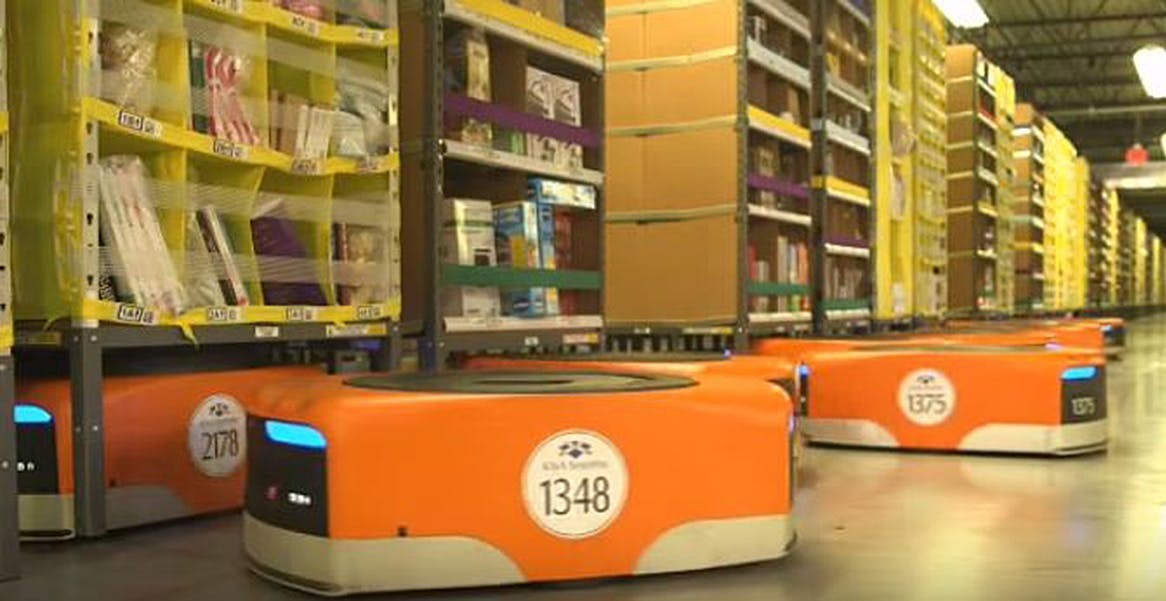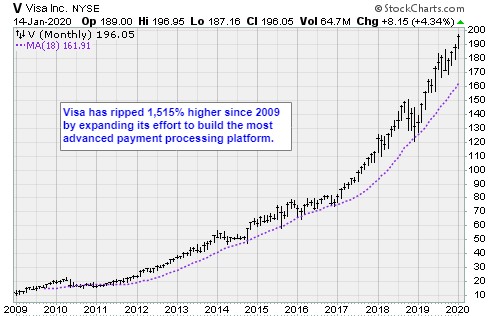Visa (V) announced Monday that the company will acquire Plaid, a San Francisco financial technology startup, for $5.3 billion. The deal reaffirms the fintech landscape.
For Visa shareholders, that was the intent all along.
Plaid makes application programming interfaces (APIs), the software routines that help computer systems communicate more effectively. Think of an API as a waiter at a restaurant. Customers place food orders with the waiter. He takes the requests to the kitchen. Twenty minutes later he returns with a piping hot plate of pasta. Plaid’s APIs help fintech companies rout and serve up digital information.
According to a CNBC report, the APIs have become part of the software “plumbing” at Venmo, a popular peer-to-peer payment app. They’re also integral at Coinbase and Gemini, two of the leading cryptocurrency exchanges.
More mundane financial institutions have gotten into the act, too. The APIs help online bank customers connect with encrypted databases to show account balances and stock price information. Plaid managers claim 11,000 bank clients, impacting 20 million consumer accounts. This means the systems are used by one out of every four people in the U.S. with a bank account.
Related post: How FICO Has Made a Fortune Off Your Credit Score
Grabbing Plaid gives Visa control over key foundational infrastructure. It also provides the payment processing giant with insight into the innerworkings of the many smaller, disruptive companies. Some of these businesses pose a legitimate threat to Visa, so keeping them close makes sense.
The strategic value is obvious.
The deal is reminiscent of Amazon.com (AMZN)’s 2012 buyout of Kiva Systems, a cutting-edge robotics firm. At the time, the ecommerce giant was strenuously building a global warehouse infrastructure to compete with Walmart (WMT). The $775 million buyout of Kiva flipped the race on its head.
The robot maker was transforming warehouses with automation. Its bright orange robots, about the size of a large ottoman, can move entire shelves packed with materials. This “goods to picker” approach was much quicker, safer and cost effective than having employees roam 800,000 square foot warehouses. The idea caught on. Kiva robots, and their codebase, became critical at big warehouses operated by companies like Walgreen’s (WBA) and Staples.
However, with the take-over, new sales of Kiva products to competitors stopped. Trade show appearances were curtailed. The coveted Kiva codebase was integrated into the Amazon Web Services software stack. Two years later, all contracts with competitors were allowed to expire.
As late as 2016, the rest of the fulfillment sector was still trying to catch up, according to a story in Bloomberg.
Amazon.com managers saw an opportunity to grab a competitive advantage by strategically removing a leading infrastructure provider. They took it. The ensuing better margins helped the company bludgeon competitors for years to come.
In fairness, Visa managers say they have no current plans to shut down Plaid. Visa CFO Vasant Prabhu claims the deal will be accretive to revenues from the onset. That might mean as much as 100 basis points of revenue growth by 2021. And the firms will work together to accelerate Plaid’s global expansion while integrating core its APIs with Visa Direct, the inhouse direct payment product.
It’s noteworthy that the Plaid deal didn’t come cheaply. The $5.3 billion acquisition price is about twice the December 2019 private equity valuation. For what it’s worth, Visa and its payment processing frenemy Mastercard (MA) participated in that financing round.
The companies often work together to set fintech standards. Occasionally, they pursue relationships with the same fintech companies only to carve up regional monopolies in the end.
Related post: Why Mastercard is Now Set to Dominate Business Transactions
It happened in 2019 when Visa and Mastercard separately took after Revolut, a London-based debit card operator. Ultimately the company agreed to region-specific deals. Mastercard won a limited-time exclusive contract in the U.S. and half of Europe. Visa got the other half share, plus exclusive rights in 24 other regions.
These relationships with fintech companies are more important than ever as Visa and Mastercard become the become the backbone of all digital transactions. It’s probably a large part of the underlying drive to acquire Plaid.
After all, the prize for working with Plaid is huge. Analysts at management consulting firm McKinsey & Co. found the global payment processing market grew to $1.9 trillion in 2018. The sector is expected to reach $2.7 trillion by 2023 as fintech companies make contactless payments commonplace.
Visa shares have been a perennial winner because managers have always been one step ahead of the biggest trends. The acquisition of Plaid fits that mode. Managers are making its processing platform indispensable to companies that would otherwise be disruptive.
Although Visa trades at 27x forward earnings and 18x sales, it’s still attractively priced given the prospects. Shares recently traded at $197.
Growth investors should buy it into weakness.
Best wishes,
Jon D. Markman





